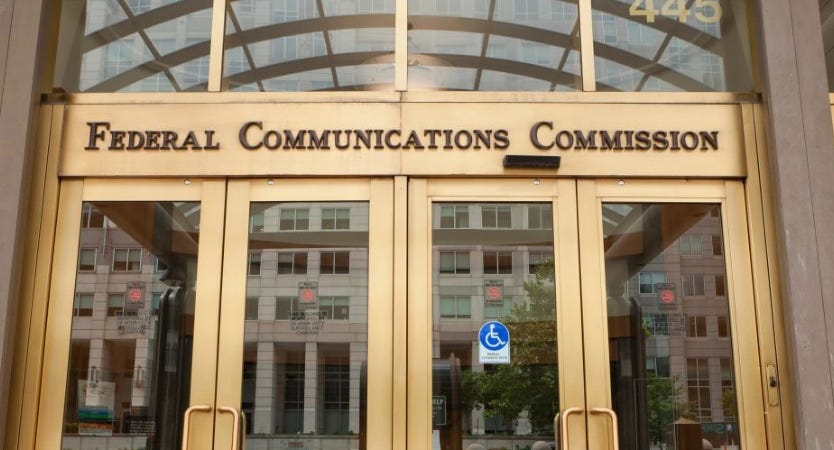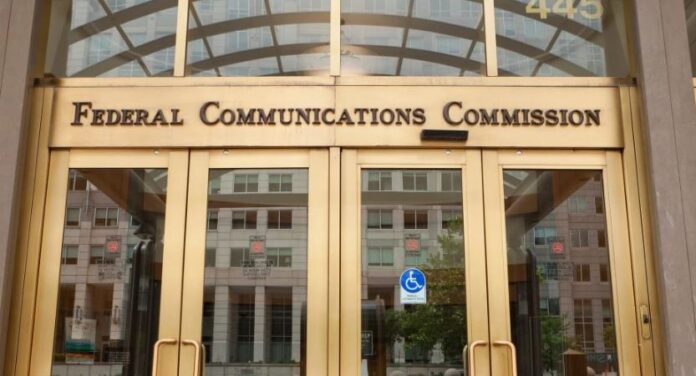Paid subscribers get access to Waymo-Toyota partnership analysis, not everyone likes the PTx Trimble $2 billion deal, Verizon faces big location privacy fine…plus Jobs and People.
More than 100 companies and industry organizations made comments that were due this week pertaining to the Federal Communications Commission’s Notice of Inquiry examining technologies complementing, or supplementing, the U.S. Global Positioning System. This action comes after the FCC ended public comments in September 2024 on NextNav’s NN 1.51%↑ petition to reallocate the lower 900 MHz spectrum for its proposed PNT service and 5G broadband.
As part of the process, which will conclude on May 13, there were two petitions that seem to have most of the interest of both companies and industry associations. The first, and most contentious, was from NextNav. The other is television broadcast positioning system, or BPS, which is championed by the National Association of Broadcasters (NAB). BPS, which was invented and patented by NAB, uses the ATS 3.0 broadcast standard to transmit timing signals.
Other alternatives or complements to GPS that can provide PNT services include low-Earth orbit networks such as SpaceX’s Starlink and Amazon’s $AMZN Kuiper.

In addition, Xona Space Systems, Iridium Satellite Time and Location service and TrustPoint are either offering, or planning to offer, additional PNT enhancements. Other technology includes eLoran, and Mobile Broadband Systems, and Navsys’s PNT as a Service (“PNTaaS”).
Saying there is no single solution, NextNav said it supported the FCC’s approach to “advance a system of systems” to PNT resiliency. “At least one terrestrial solution should rely on market forces to deliver a terrestrial, widescale PNT solution that is broadly available to critical infrastructure, public safety, and consumers, and has a clear path to incorporation in end-user devices,” the company said.
NextNav has said that its proposal won’t cost the U.S. taxpayer any money. “Our approach delivers a scalable, terrestrial solution that strengthens national GPS resilience without a dime of taxpayer money,” said Ed Mortimer, NextNav’s vice president of government affairs. “We do it by leveraging spectrum already licensed to NextNav and by tapping into the power and scale of 5G. The private sector can contribute to a system-of-systems approach to resiliency, and NextNav looks forward to working with industry stakeholders and the FCC to help solve an urgent national security problem.”
Others are not so sure, saying that NextNav, in essence, could be cornering $5 billion in spectrum with a positive FCC decision. Others are championing space-based LEO PNT they say it covers more ground than terrestrial systems.
The GPS Innovation Alliance, in their FCC comments, also proposed complementary PNT to provide fully nationwide and/or global coverage. However, the association says that GPSIA highlights that while jamming and spoofing refer to intentional acts to disrupt a signal or falsify data, the actions are “sometimes discussed in the context of potential adverse impacts to GPS” and “do not reflect vulnerability of GPS satellites or receivers.”
Even though there were more than 100 comments from companies and organizations, including Apple AAPL -0.47%↓, which was protecting its product line, there were a few big industry names missing for some reason. “Every company offering PNT services and related equipment should comment,” said Dana Goward, Resilient Navigation and Timing Foundation president, in a LinkedIn post.
Overall, the FCC’s inquiry aims to understand the advantages and disadvantages of these emerging PNT applications based on factors such as performance, adoption, scale, coverage, durability, cost, and commercialization, the agency said.



























